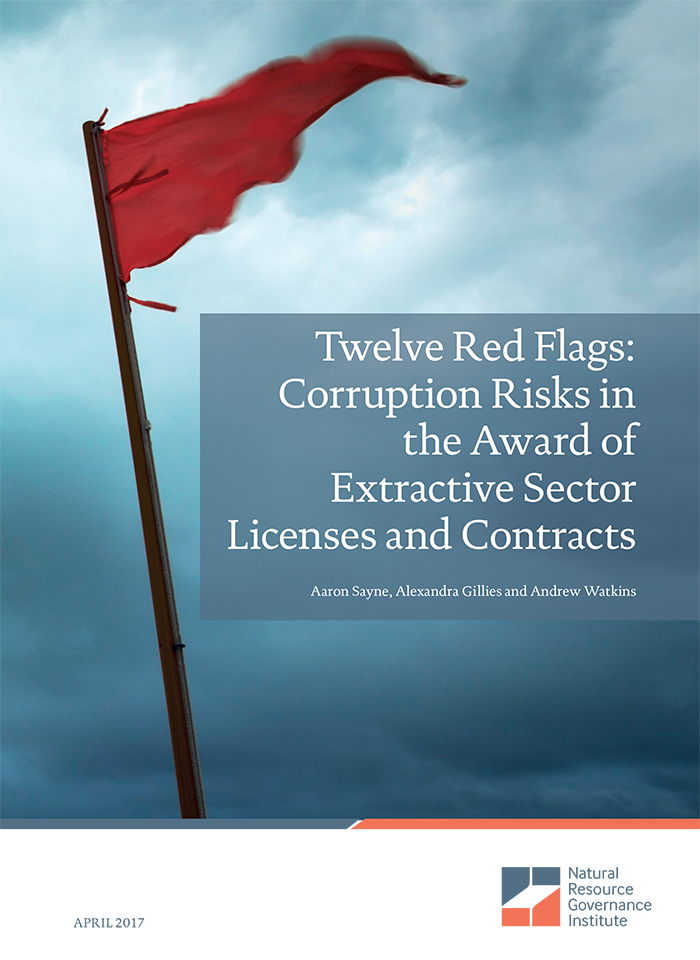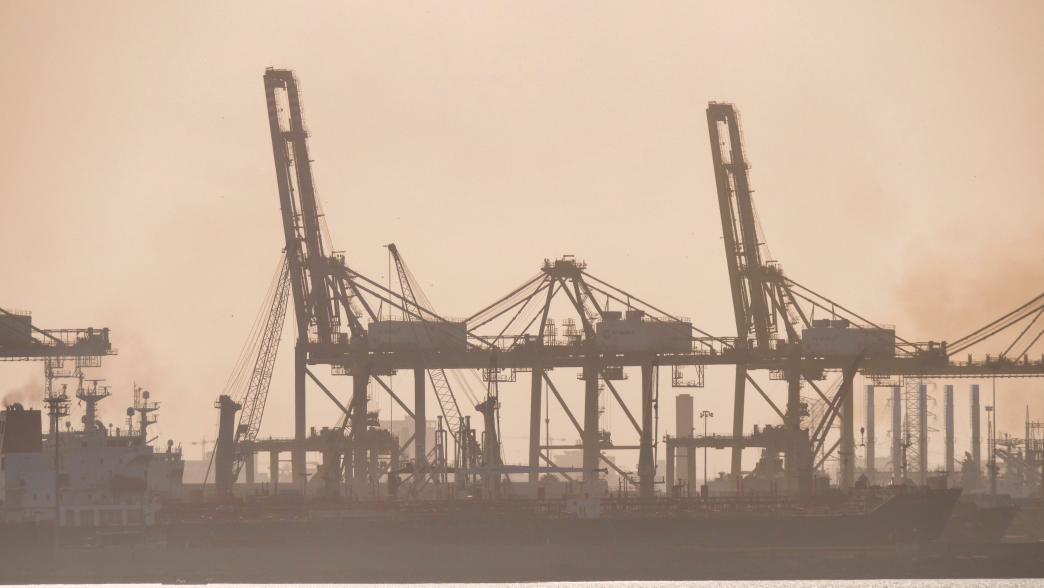
Who Gets to Get Rich? Lessons from BP’s Senegal Payout
According to a BBC investigation broadcast last week, a recent oil deal in Senegal was festooned with red flags that signaled the potential for controversy and possible corruption. The Senegalese government went ahead with the deal despite the warning signs, and prominent U.S. and U.K. oil companies later joined in as well. As a result, a businessman dogged by ethics questions will walk away with hundreds of millions—and possibly even billions—of dollars in return for having done very little, and the country’s oil sector is left steeped in controversy. What can we learn from this unfortunate turn of events?
In 2011, the Senegalese government awarded the rights to explore two offshore oil blocks to a company called PetroTim. When a new Senegalese government came into power in 2012, it allowed PetroTim to retain rights to the blocks. In 2014, PetroTim transferred the rights to Timis Corporation which is owned by the controversial businessman Frank Timis. That same year, the American oil company Kosmos acquired 60 percent of the blocks from Timis and began exploring for oil and gas. Kosmos found major natural gas reserves, and BP then joined the partnership. Finally, as reported by the BBC, BP bought out Timis Corporation in 2017 for $250 million and a share of the gas field’s future royalties.
The deals should not have proceeded in this way. In 2017, my colleagues and I examined dozens of corruption cases connected to the award of oil, gas and mining licenses around the world. Looking at these scandals and mishaps, we asked what warning signs might have alerted authorities or outside observers that something suspicious was afoot? We found 12 common red flags that, when observed, should prompt additional scrutiny and concern.

According to the BBC investigation, the award of the licenses to PetroTim, the transfer to Timis Corporation and subsequent events exhibited at least a whopping seven of our red flags, and possibly two more:
- Unqualified company: PetroTim had no exploration experience, and was incorporated up a few weeks after the contract was signed, according to the investigation.
- Controversial player: From decades of work in West Africa’s extractive sector, Frank Timis leaves behind a record of numerous disturbing controversies, lying to investors and accusations of human rights abuses.
- Business relationship with a politically exposed person (PEP): By the time Kosmos arrived on the scene, Timis Corporation had hired the brother of Senegal’s president Macky Sall, who was elected in 2012.
- Company payments to a PEP: Timis Corporation employed the president’s brother and paid him $25,000 per month. The BBC also reported a secretive payment from Timis Corporation to an offshore company owned by the president’s brother, though the company and the brother deny the payment ever existed.
- Conflict of interest: The president oversaw decisions that benefited a company for which his brother worked.
- Deviation from industry norms: In 2012, at the height of the oil boom, it is possible that an open and well-run tender could have attracted a capable company to explore the blocks, and yet the government selected an unqualified company instead. The BBC reported that a major oil company was indeed interested at that time.
- Asset flipping: The winning company, Timis Corporation, sold the block for a large profit having made limited contributions towards its development.
Based on the findings of the BBC investigation, it is possible that further red flags may apply as well:
- Hidden owners? The BBC reports that small offshore companies hold shares in Timis Corporation, and the owners of these companies are unknown.
- Official intervention in award process? The BBC suggests that the president and his brother held a meeting to discuss the deal, though the brother denies this.
The presence of these red flags does not prove that corruption or criminal wrongdoing occurred, and many of the parties have denied wrongdoing. In a statement to the BBC, Frank Timis and the Timis Corporation call the accusations “entirely false” and state that his company’s “pioneer capital, drive and experience” along with industry relationships were essential for unlocking the block’s potential. The Senegalese president disputed the claims against his brother, who also denied aspects of the story and said he would take legal action against the BBC. BP “rejects any implication that it acted improperly in the acquisition of our interests in Senegal” and stated that it “conducted extensive and appropriate due diligence” before acquiring the license. The company also rejected the BBC’s estimates of the royalty payments to Timis.
Given the glaring warning signs, it is important to ask: Why did the Senegalese government choose PetroTim to begin with? Why did it then let Timis Corporation acquire the rights? And, why did Kosmos and BP choose to partner with the Timis Corporation? It’s because of these two decisions that Frank Timis will walk away from his Senegal oil sector adventure with his pockets full.
Considering these questions may hold a couple lessons.
First, the challenge here appears to be one of low standards rather than inadequate due diligence. Most of the red flags were observable well before the BBC’s investigation. Savvy and experienced companies such as Kosmos and BP surely saw them, and the government of Senegal likely did too. The government award process failed to weed out PetroTim as a suboptimal candidate. The later decisions by Kosmos and BP to move ahead with the deals suggest that they found their legal risks to be acceptably low, such as with respect to the U.S. Foreign Corrupt Practices Act or the U.K. Anti-Bribery Act. Indeed, Kosmos has been open about the identity of its new partner as part of the company’s strong commitment to transparency. So, it’s not that the parties’ due diligence systems failed to uncover the red flags; it’s more likely that they noted and assessed the risks and decided they were worth taking.
Outcomes like this one generate controversy and create conducive conditions for corruption. To avoid them, companies should apply higher standards for the kinds of partners and deals that they take on. This is a different takeaway than the one often drawn from controversies such as this one. For example, many FCPA settlement agreements involve companies promising to adopt ever more elaborate due diligence protocols. Even if these new and improved systems do expose more dirt, they won’t prevent future problems if executives approve the deal anyway.
Second, once an asset becomes “tainted” by controversy or suspected corruption, the options for getting it back on track are limited and unsatisfying. If the unqualified Timis Corporation retained full control over the license, the gas fields would have sat dormant and produced no returns for the country. If the government sought to revoke his license, years of disputes and arbitration would have followed. So instead, the two international companies partnered with Timis and eventually paid off his company in order fully claim the gas fields. The Timis Corporation had a legal claim to the licenses, so it negotiated a healthy payday for itself before agreeing to exit. But that payday has generated a scandal and inflicted reputational harm on all parties—and the harms could continue since BP will pay Timis a share of the field’s royalties for many years to come. While it’s good that capable companies now manage the assets, it should not have taken such a problematic set of transactions to reach that outcome.
The problem of tainted assets can be avoided altogether if governments award licenses to qualified and appropriate parties to begin with. The spread of beneficial ownership reporting, contract disclosure and other forms of transparency may help encourage this behavior. However, in cases where it is too late, we need a method for handling tainted assets that doesn’t stoke scandal and that protects the public interest of the country in question.
The Senegal situation is not the most dramatic or disturbing example of these challenges. In Nigeria, in the late 1990s, the petroleum minister allocated the oil block OPL 245 to a company called Malabu which he himself partly owned. Shell and Eni later sought to acquire the rights to the block. But what to do about Malabu? In 2011, Shell and Eni paid $1.3 billion into a Nigerian government account for the block. Multiple accounts conclude that more than $1 billion of the payment ended up paying off Malabu’s owners, government officials and other private parties. Leaked emails indicate that Shell and Eni personnel negotiated directly with Malabu’s owners to arrive at the deal. Again, weak company due diligence was not the problem as OPL 245’s history was well known to all parties. Rather, the companies knew the risks and chose to engage with Malabu anyway. In this case, the gamble may not have paid off. Italian prosecutors indicted the two companies and several top executives on corruption charges, and their trial is ongoing. They deny wrongdoing. Other cases, including from Liberia and the DRC, further illustrate the problems that arise when international companies engage with high-risk, problematic actors in order to access extractive sector opportunities.
The BBC’s investigation of the Senegal case sounds the alarm once again. Unless governments and companies adopt stronger standards for the kind of deal they’ll undertake and we tackle the challenge of tainted assets, the natural resource wealth of developing countries will continue ending up in the wrong pockets.

